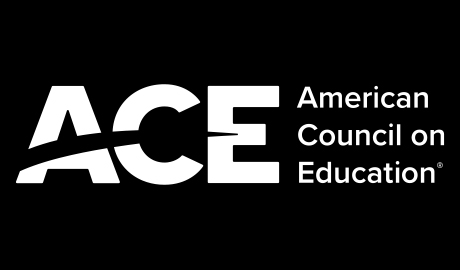Principles of Economics – Online Higher Education Course
Welcome to the greatest hits of economics. This 100% online Principles of Economics course covers the most important lessons from both microeconomics and macroeconomics with real world examples. Students will explore supply and demand, inflation, game theory, climate change, and even cryptocurrency.
A New Way to Learn Economics
In Principles of Economics, students will:
- Understand foundational principles of the economic way of thinking
- Define the scope of microeconomics and macroeconomics
- Describe important microeconomic concepts, such as supply and demand, consumer and firm behavior, labor markets, poverty, and inequality
- Describe important macroeconomic concepts, such as Gross Domestic Product (GDP) and its growth rate, unemployment, and inflation
- Understand the relationship between modern economies and climate change
Gen Ed That Simply Works

Turnkey Courses
With online, asynchronous courses that are ready to run, you can deliver high-quality learning and outcomes predictably and affordably.

Curriculum You Can Trust
Every course is recommended by the American Council on Education. So you can trust the curriculum meets rigorous academic standards.

Captivating Student Experience
Students enjoy cinematic lectures from experts in the field and interactive, mastery-based learning—all in a flexible, 14-week course that fits their schedules.

Unlimited Enrollment
With no minimum or maximum enrollment, students get the courses they need when they need them, so they stay on track in their degree program.
Discover the magic of learning with Principles of Economics
Watch the Trailer
Economics principles in a nutshell
-
Key Concepts
-
Learning Outcomes
-
Assessments
-
Educator Support
-
World-Class Instructors
Key Concepts Covered
-
Supply and Demand in Microeconomics
- Foundational economic tools
- Supply, demand, and equilibrium
- Consumer and producer surplus
- Price floors, price ceilings, and deadweight loss
- Consumer and firm behavior
- Utility maximization and the production function
- Implicit and explicit costs
- Short-run costs, long-run costs, and profit maximization
-
Market Structures and Market Failure
- Types of market structures
- Long-run adjustments
- Perfectly competitive markets
- Monopoly, regulation, and antitrust policies
- Firms in game theory: players, strategies, and Nash equilibria
- Market failure and externalities
- Measuring and modeling externalities with environmental policy
-
The Labor Market and Inequality
- Public goods and common pool resources
- The competitive model of the labor market
- Monopsony, unions, and minimum wages
- Measuring economic inequality
- Causes and outcomes of inequality in the U.S.
- Categorical and intergenerational inequality
-
Macroeconomic Models
- Macroeconomics and economic growth
- Gross domestic product (GDP)
- Nominal GDP and real GDP
- Measuring unemployment
- Price indices and inflation
- Aggregate demand and aggregate supply
- Keynesian economics and the expenditure multiplier
-
Fiscal and Monetary Policy
- Federal, state, and local government budgets
- Fiscal policy
- Credit
- The money market
- Banks, money creation, and money management
- Monetary policy and the central bank
- The lender and dealer of last resort
Learning Outcomes
-
Course Learning Outcomes
- Understand foundational principles of the economic way of thinking
- Define the scope of microeconomics and macroeconomics
- Describe important microeconomic concepts, such as supply and demand, consumer and firm behavior,market structures, labor markets, poverty, inequality, and discrimination
- Describe important macroeconomic concepts, such as Gross Domestic Product (GDP) and its growth rate, unemployment, and inflation
- Understand the relationship between modern economies and climate change
- Apply the aggregate supply/aggregate demand model to analyze how the macroeconomy operates
- Understand the roles of government and the banking system in a market economy to help an economy run efficiently
Assessments
-
Quizzes and Exams
- Course quizzes and exams consist of multiple choice, true/false, select all that apply, matching, and open-response questions. All are autograded by the LMS, so educators can spend more time with students and less time grading.
Educator Support & Dashboard
-
Access All Course MaterialEducators and administrators have full access to the Partner Dashboard and all course material from Day 1.
-
View Course MilestonesEasy-to-use tools show milestone dates and deadlines for the cohort, as well as the full weekly course schedule.
-
Monitor Student Progress in Real TimeCoach students throughout the course—from registration to the final exam—with complete reporting on their current course grades, assessment scores, and engagement with course material.
-
Download Student Grades & ProgressEducators and administrators can download student grades and full progress report details in CSV format.
-
Review Student Submissions for Graded AssessmentsEducators and administrators can view student-submitted answers to assignments, quizzes, and exams.
World-Class Instructors
-
World-Class Instructors
We selected a team of charismatic instructors to bring each economic concept to life:
- Suresh Naidu, Ph.D., Columbia University
- Homa Zarghamee, Ph.D., Barnard College
- Simon D. Halliday, Ph.D., University of Bristol
- Rajiv Sethi, Ph.D, Barnard College
- Ben Ho, Ph.D, Vassar College
- Peter Hans Matthews, Ph.D., Middlebury College
- Elham Saeidinezhad, Ph.D., Barnard College
Frequently Asked Questions About Principles of Economics
-
How are Outlier courses structured?Outlier courses are divided into a series of chapters and sections. Each section contains cinematic video lectures and active learning (our interactive digital textbook) that help students learn the course content. Students demonstrate their knowledge on graded assessments, including mastery-based quizzes they can retake up to 3 times.
-
Are there any course prerequisites?No. However, this course fulfills an Economics requirement for most non-economics majors. If your students plan to major in economics, we recommend Outlier’s Intro to Microeconomics or Intro to Macroeconomics.
-
Are there any student eligibility requirements?
Students must be at least 13 years old. Students who enroll in an Outlier course should be ready for the academic rigor of college-level coursework and carefully consider their existing responsibilities and dedication.
-
What technology does my school need to take Outlier courses?
Each student must have access to technology that meets the technical requirements noted in this Help Center article.
-
What is the minimum/maximum enrollment?
All Outlier courses have unlimited enrollment, with no minimum or maximum. So they easily adapt to your scheduling and staffing needs.
-
What support is available for educators?
Your educators get complete visibility into student progress in the Partner Dashboard, including:
- Progress monitoring based on the course syllabus and schedule
- Grade pacing and forecasting based on students’ performance
-
Is Principles of Economics completely online?Yes, Outlier courses are 100% online and asynchronous. Your students can learn during any class period—anywhere in the universe with Wi-Fi and a laptop or desktop computer.